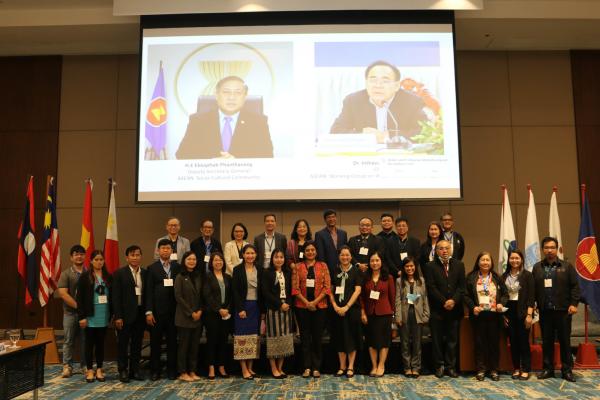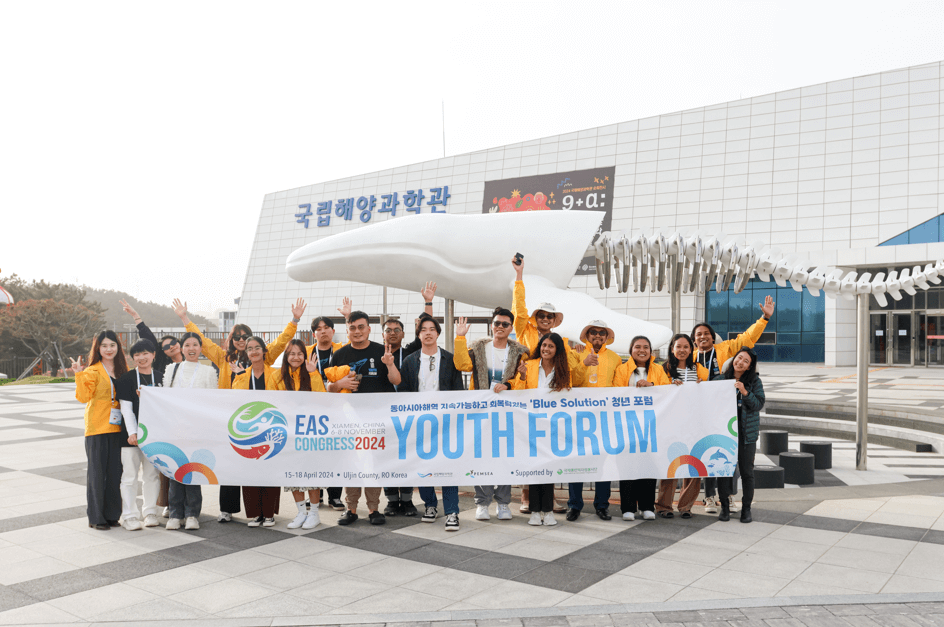ASEAN Integrated River Basin Management Project Launched in Manila
Monday, 20 February 2023

=
MANILA, PHILIPPINES – a five-year regional project on Reducing Pollution and Preserving Environmental Flows in East Asian Seas Through the Implementation of Integrated River Basin Management (IRBM) was launched in Manila to develop practical and innovative ways for communities, industries and governments to work together to revitalise Southeast Asia’s rivers.
Many of the region’s largest cities were built beside rivers: Viet Nam’s Ho Chi Minh City has the Saigon, Malaysia’s Kuala Lumpur the Klang, Indonesia’s Jakarta has the Ciliwung, the Philippines’ Metro Manila the Pasig. These rivers provide natural habitats for various plants and animals, food production and water sources for millions of people. As many rivers pass through densely populated towns and cities, waste and sediment eventually flow out to sea. According to the ASEAN Regional Action Plan on Combatting Marine Debris, plastic is estimated to account for 80% of all marine debris in the ocean.
Supported by Global Environment Facility (GEF) and the United Nations Development Programme (UNDP), the Project will establish functional IRBM mechanisms in the major river basins of six ASEAN Member States – Cambodia, Indonesia, Lao PDR, Malaysia, the Philippines, and Viet Nam. “It will integrate knowledge about the vital connections between rivers and seas. Best practices and pitfalls shall be shared for other rivers to emulate and avoid,” explains Dr. Inthavy Akkharath, Chair of the ASEAN Working Group on Water Resources Management.
The launch was inaugurated by Dr. Carlos Primo David, Undersecretary for Integrated Environmental Science and Supervising Undersecretary of the DENR River Basin Control Office of the Philippines, the host country of the launch, who says that “Effective governance will allow us to continue to utilise the water and other ecosystem services that river basins provide despite the threats of extreme events and climate change.”
“Water use among ASEAN countries is growing rapidly, while water quality and quantity challenges threaten to derail much-needed economic growth,” adds Dr. Selva Ramachandran, UNDP Resident Representative to the Philippines. “We’re glad to help address the critical issue of freshwater governance in river basins beyond national jurisdictions, addressing transboundary issues such as pollution, watershed management, climate change impacts and disaster risks.”
“The project is a testament of ASEAN’s collective and forward-looking action to improving water resources management in our region,” says Ekkaphab Phanthavong, Deputy Secretary-General of ASEAN for the ASEAN Socio-Cultural Community.
Partnerships in Environmental Management for the Seas of East Asia (PEMSEA), the implementing agency of the project, will work closely with the governments and stakeholders in ASEAN Member States to improve source-to-sea governance, as well as build the capacity to plan and strengthen river basin management mechanisms.
“We view this project as a natural extension of PEMSEA’s work on integrated coastal management – as rivers are natural conduits to our coasts and open seas,” explains Aimee Gonzales, PEMSEA Executive Director. “We are excited to institutionalise the use of the integrated river basin management approach, produce state of the river basin reports which will be the first of its kind in the region, test innovative solutions in select pilot sites within the identified river basins, while mainstreaming gender equality and social inclusion from the design, planning and all the way to implementation at the regional, national and river basin level.”
The launch was organised in conjunction with a Project Inception Workshop and the first Project Steering Committee Meeting to discuss project implementation arrangements, among others. It was attended by representatives from the ASEAN Working Group on Water Resources Management, ASEAN Secretariat, UNDP, PEMSEA, and project implementing partners.
Learn more about Integrated River Basin Management (IRBM) by watching the launch of our new IRBM project HERE.
For media queries:
Mr. Gregg Yan
PEMSEA Communications Consultant
M - +63917 833 4734
E - Ushuaiia077@Gmail.com
Ms. Mustika L. Hapsoro
ASEAN Secretariat, Media Officer
M - +63917 833 4734
E - Ushuaiia077@Gmail.com
For project queries:
Ms. Nancy Bermas
PEMSEA Senior Programme Manager
E - Nbermas@pemsea.org
About the IRBM Project Partners:
 | Partnerships in Environmental Management for the Seas of East Asia (PEMSEA) is an intergovernmental organization created with a clear mission of fostering and sustaining healthy and resilient coasts and oceans, communities and economies across the Seas of East Asia through integrated management solutions and partnerships. For over two decades, PEMSEA has provided solutions for effective management of coasts and oceans across the shared seas of East Asia. For more information: https://pemsea.org. |
 | The United Nations Development Programme (UNDP) is the United Nations’ lead agency on international development, supporting countries and communities as they work to eradicate poverty, implement the Paris Agreement on climate change and achieve its Sustainable Development Goals. UNDP advocates for transformative change and connects countries to the resources they need to help people build better lives. For more information: https://www.undp.org. |
 | The Global Environment Facility (GEF) is a multilateral fund dedicated to confronting biodiversity loss, climate change, pollution and strains on land and ocean health. Its grants, blended financing, and policy support helps developing countries address their biggest environmental priorities and adhere to international environmental conventions. The GEF connects 185 member governments with sustainability leaders across civil society, Indigenous Peoples, and the private sector, and works closely with other environmental financiers for efficiency and impact. Over the past three decades, the GEF has provided more than $22 billion in grants and blended finance and mobilized $120 billion in co-financing for more than 5000 national and regional projects. For more information: https://www.thegef.org. |
 | The Association of Southeast Asian Nations (ASEAN) was established on 8 August 1967 in Bangkok, Thailand, with the signing of the ASEAN Declaration (Bangkok Declaration) by the Founding Fathers of ASEAN: Indonesia, Malaysia, Philippines, Singapore and Thailand. Brunei Darussalam joined ASEAN on 7 January 1984, followed by Viet Nam on 28 July 1995, Lao PDR and Myanmar on 23 July 1997 and Cambodia on 30 April 1999, making up what is today the ten Member States of ASEAN. For more information: https://asean.org. |
 | The Philippine Department of Environment and Natural Resources (DENR) is responsible for the conservation, management, and development of the country's environment and natural resources. It works to ensure the proper use of these resources and the protection of the environment within the framework of sustainable development. For more information: https://www.denr.gov.ph. |



